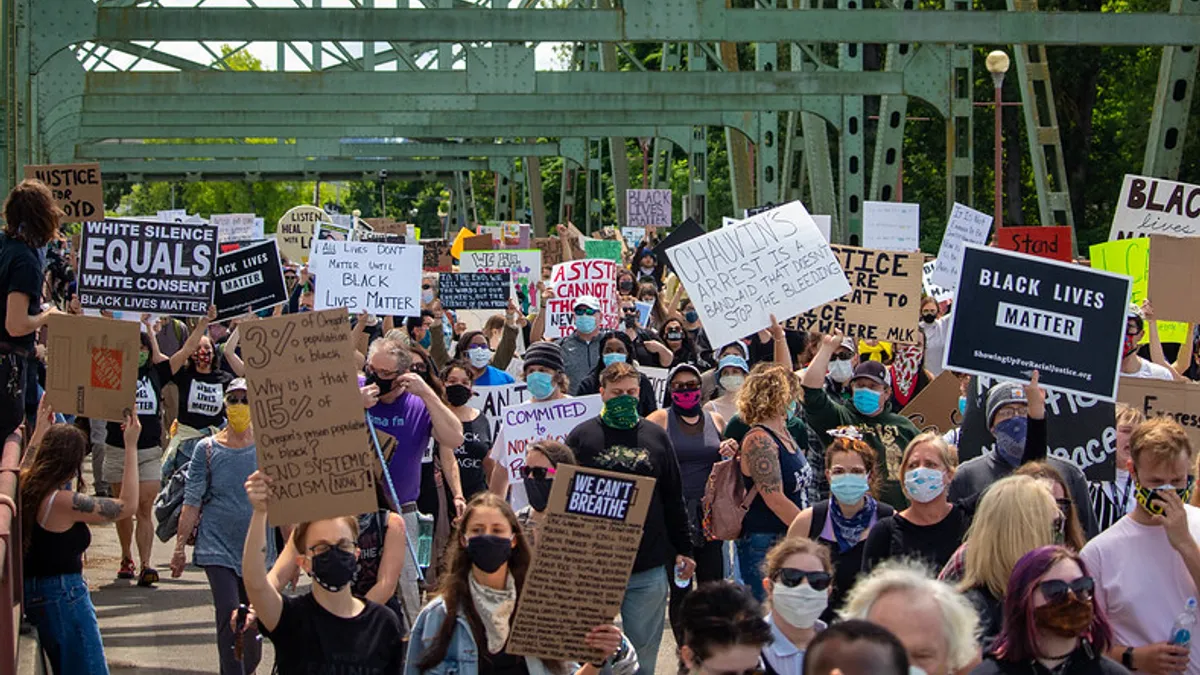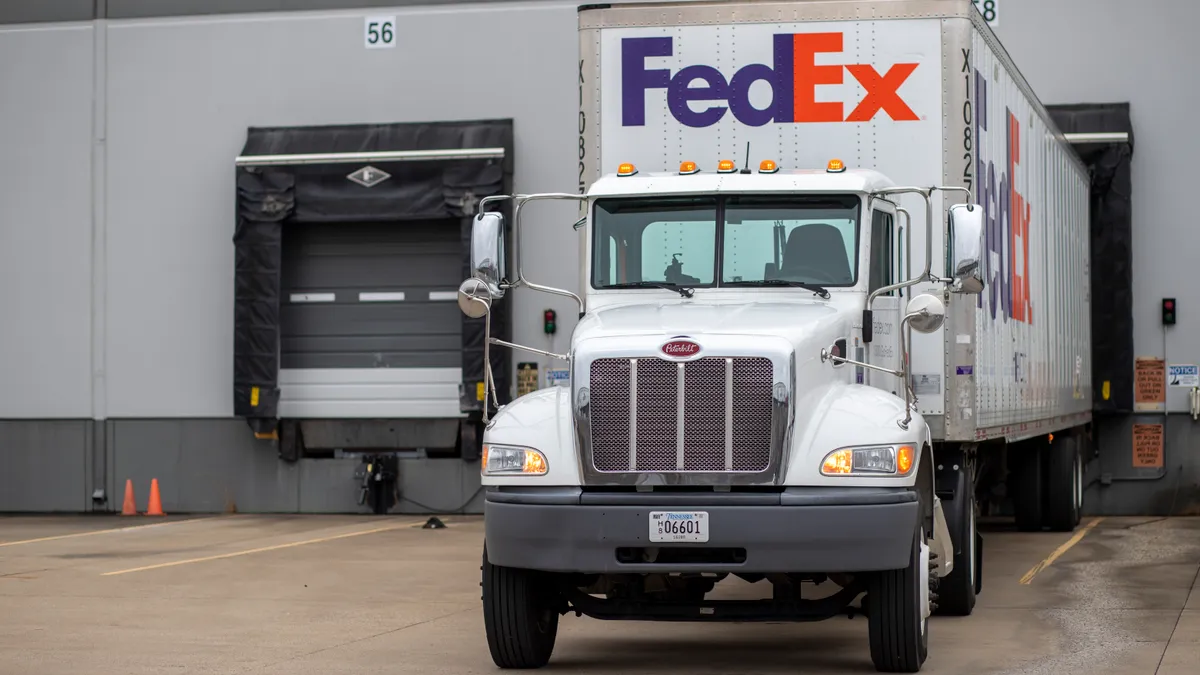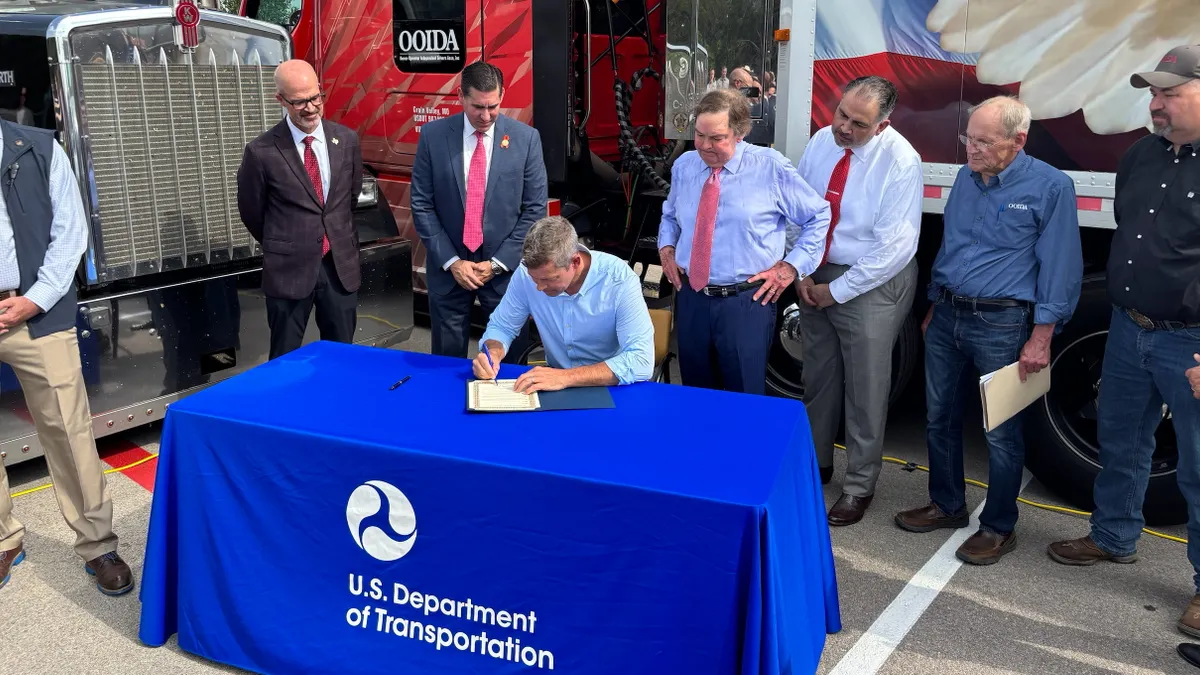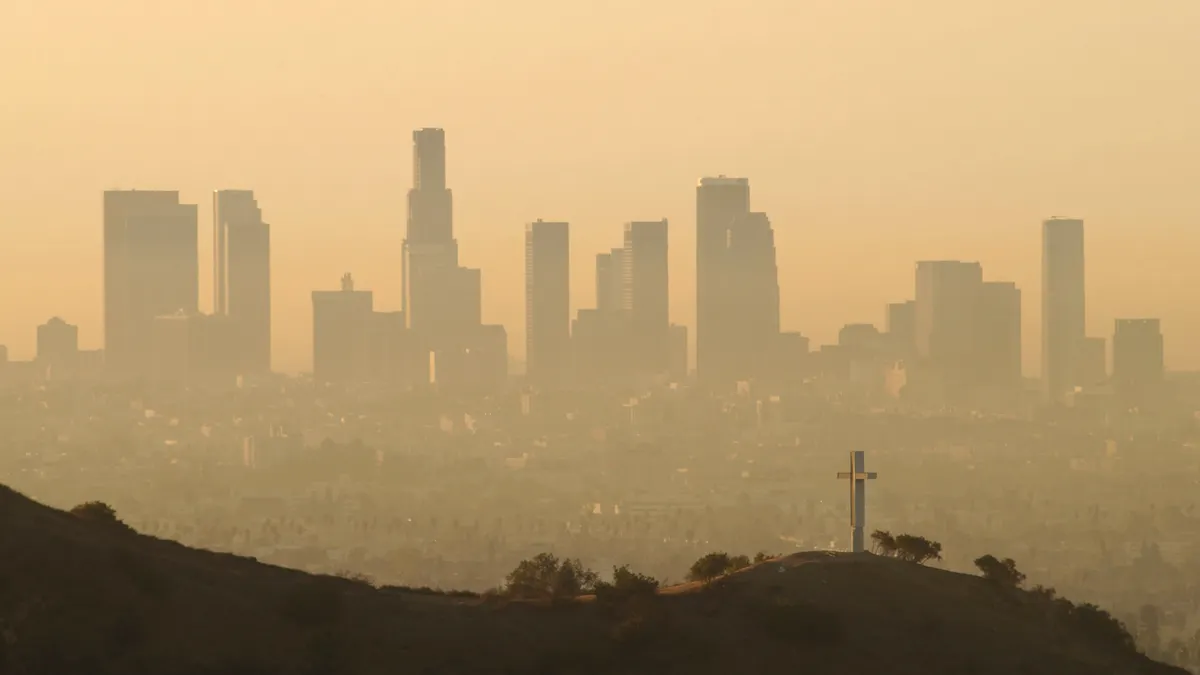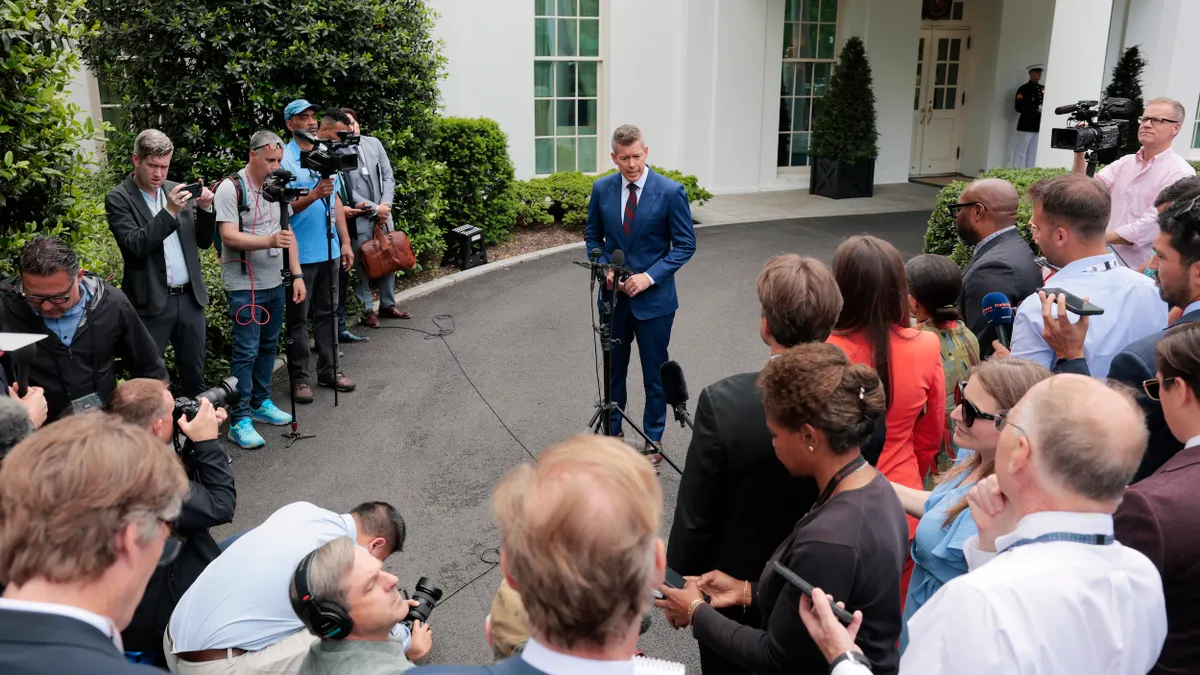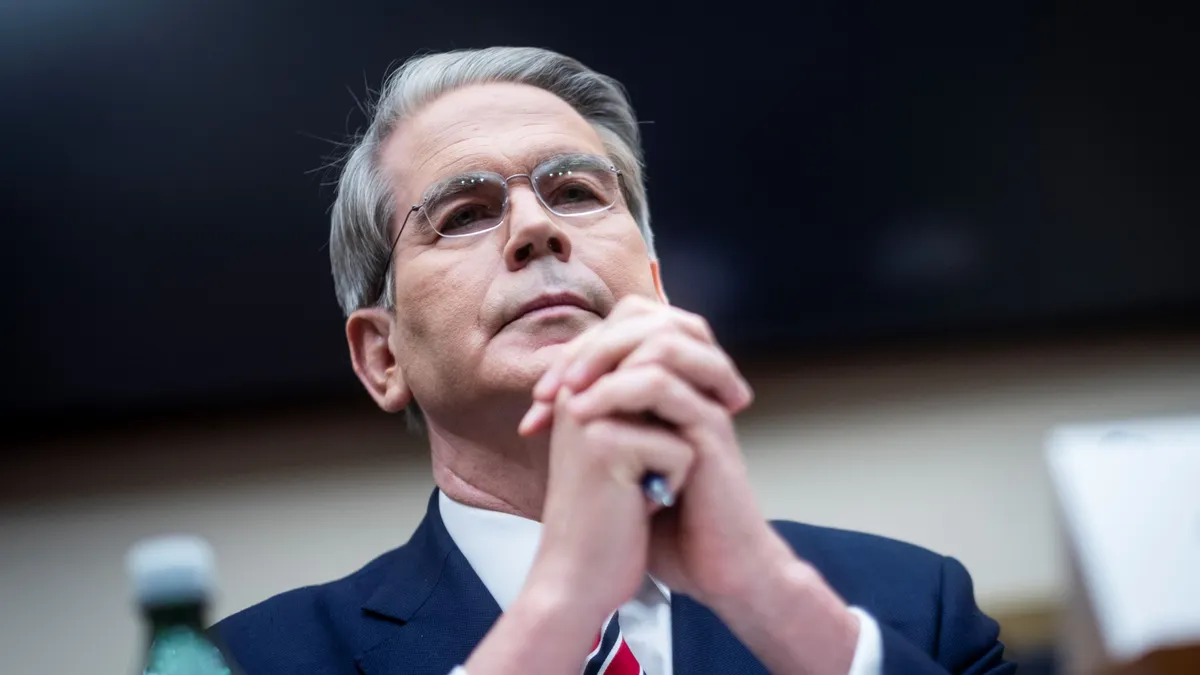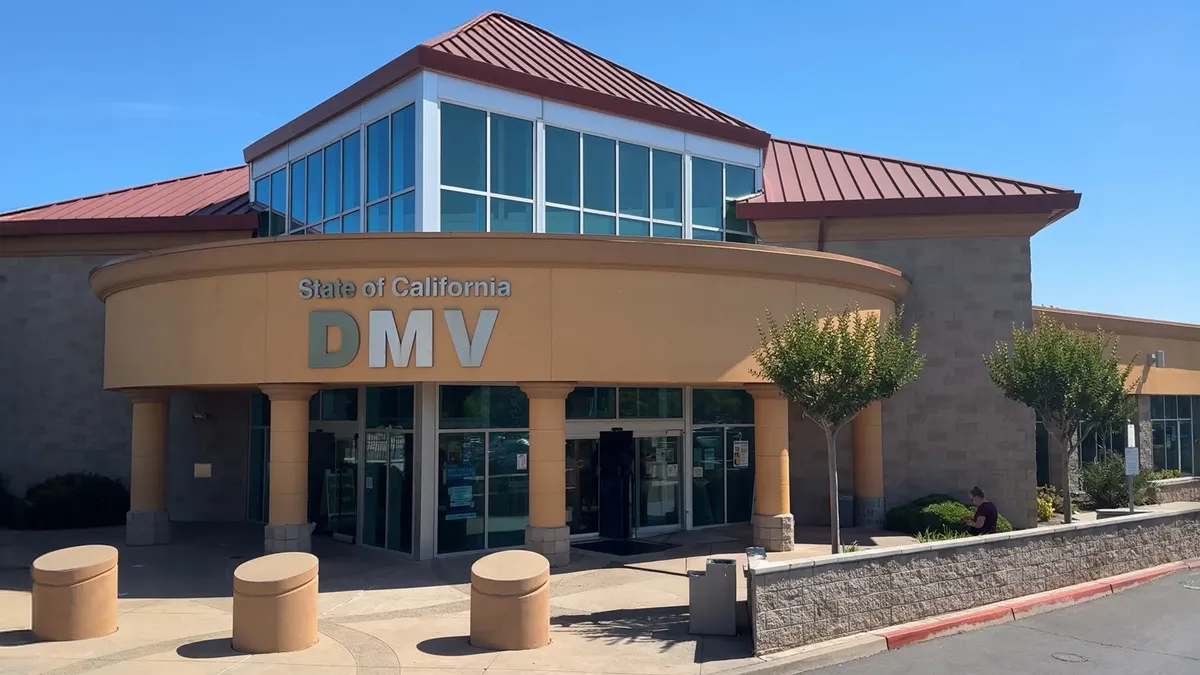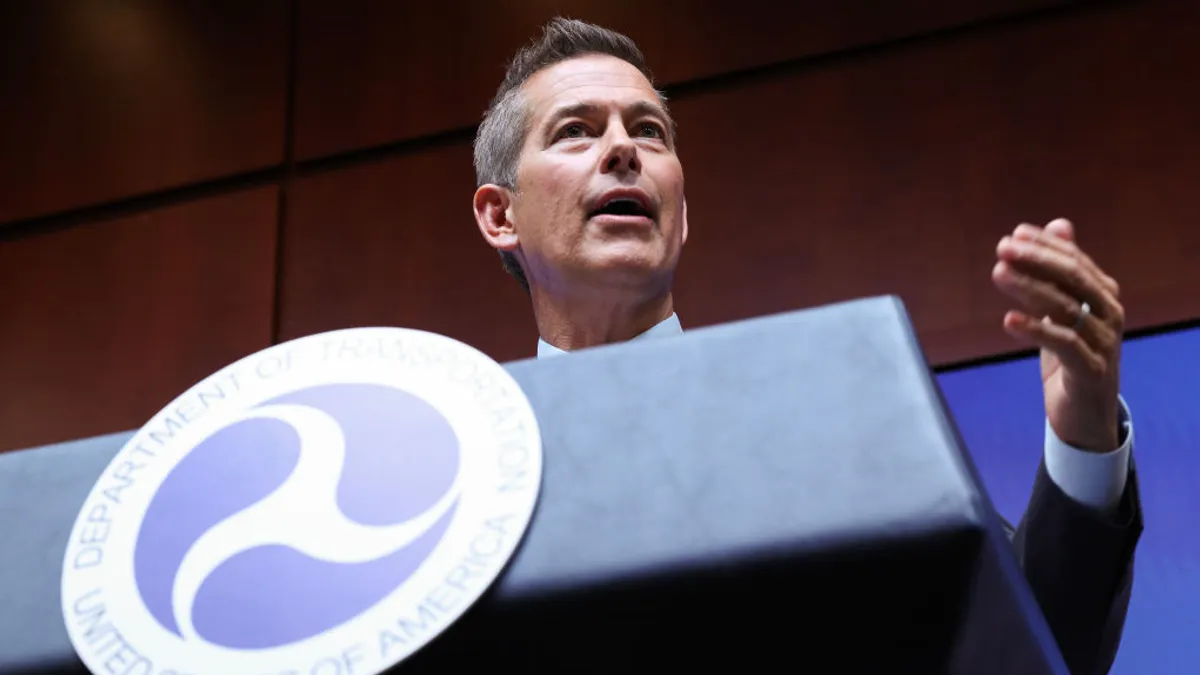Protests on city streets and interstates have prompted trucking organizations to meet and develop protocols for maintaining or rerouting operations on blocked roads.
Interstates have been seen regularly, for the last few years, as opportunities for disruption by some activist organizers, John Hausladen, president and CEO of Minnesota Trucking Association, told Transport Dive.
The overall issue of protests on major roadways has become so worrisome to trucking officials that the American Trucking Associations (ATA) held a teleconference with members on Thursday and distributed a document outlining how to avoid such disruptions.
Hausladen said the use of interstates seems to have become a growing and invariable part of major U.S. protests.
"This has gone from a rarity to a tool used by some activists."
John Hausladen
President and CEO, Minnesota Trucking Association
"Roadways are not safe for pedestrians, period," Hausladen told Transport Dive. "This has gone from a rarity to a tool used by some activists."
Avoiding a possible confrontation or being halted on the road will likely mean delays, Hausladen said.
"Sometimes it means just don't dispatch," Hausladen said. "Sometimes we will go way out of route."
Preparing drivers
A number of fleets contacted said they train drivers in how to deal with the unknowns of possible peril within a protest on a roadway, or other dangers caused by civil unrest.
"While in an area where protesting or rioting is occurring, we are instructing our drivers to put safety first and seek secure places in the event they feel they are not able to deliver their load," said Matt Herndon, COO of U.S. Xpress, in an email. "Additionally, we’re asking them to be mindful of and abide by curfews. If they can't deliver due to any of these issues, we're letting them know to contact us and we'll engage the customers to work out an alternative."
“Whose streets? Our streets,” protesters chant as they march on I-35 @KVUE
— Molly Oak (@MollyAndAMic) June 7, 2020
Credit: Jon Arnold pic.twitter.com/6sG6lw13Qo
Norita Taylor, a spokesperson for the Owner-Operator Independent Drivers Association (OOIDA), said the organization is recommending drivers be aware of alternatives and curfews.
"If you decide not to attempt delivery or pickup, determine a safe haven or truck stop and consider an alternate route to get there," Taylor said in an email. "Try to learn curfews, which even though they are not applicable to truck drivers, would indicate the likelihood of encountering a protest taking place."
Quick thinking is also something UPS trains, a company spokesperson said.
"Our drivers are trained to be aware of their surroundings at all times, and we follow local and statewide ordinances to safely meet our service commitments," said Matthew O'Connor, UPS spokesperson. "Our drivers have the training and autonomy to make quick decisions that can keep them safe during their workday."
On Wednesday, during a webinar hosted by WorkHound on the future for trucking, Mark Walker, chairman and CEO of TransLand, said "overcommunication" is key during a crisis.
"There is not one load of cargo that's more important than the driver."
Mark Walker
CEO, TransLand
"You do that best by stop talking, and start listening," said Walker.
The key core value, Walker added, is the safety of the driver.
"There is not one load of cargo that's more important than the driver," said Walker.
Near tragedy
Trucking officials are on edge because of what happened on May 31, during the protests that started after the killing of Minneapolis resident George Floyd on May 25. A major accident was averted when a truck driver slowed before a group of hundreds of protesters on I-35W in Minneapolis.
The truck driver, Bogdan Vechirko, was arrested and jailed for failing to yield in a timely fashion to protesters. Vechirko was dragged from the truck and beaten, but not severely. Vechirko was defended by Minnesota Gov. Tim Walz and the Minnesota Trucking Association, who said his coming near protesters on I-35W was inadvertent. On Wednesday, Vechirko was released from the Hennepin County Jail. Minnesota authorities declined to charge him or the people who struck Vechirko. The Minnesota Department of Transportation later said they were in the process of closing the interstate portion, but Vechirko took a ramp not yet closed, according to CBS News.
For the trucking industry, the near-tragedy May 31 on I-35W brings back memories of truckers almost hitting people or being halted during a protest, caught in a societal maelstrom they want no part of.
It was April 29, 1992, when Reginald Denny was driving his heavy-duty truck in Los Angeles. What Denny did not know that day was riots had broken out in the South Central part of Los Angeles over the acquittal of four white police officers who had beaten Los Angeles resident Rodney King during a 1991 traffic stop. Young rioters grabbed Denny from his truck and beat him. Then one man smashed Denny's head with a cinder block. Denny would have died that day had neighborhood residents not rushed to his aid.
It's a memory from the 1992 riots that still haunts truckers of all backgrounds. And it raises thorny questions for drivers: What happens if I am caught up in a protest? Do I abandon my truck? Do I try to keep driving through a protest and hope they let me through?
In its June 4 guide, the ATA recommended such actions as drivers and trucking officials immediately reporting any emergency situation to local law enforcement by calling 911. It also said drivers should avoid areas of unrest, exercise caution when in the vicinity of any large gatherings, protests, or demonstrations, and plan for road closures.


